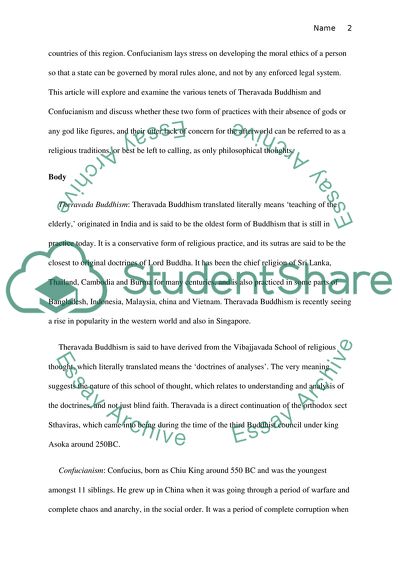Cite this document
(“Despite the absence of god or gods, as well as a lack of concern for Essay”, n.d.)
Despite the absence of god or gods, as well as a lack of concern for Essay. Retrieved from https://studentshare.org/miscellaneous/1562959-despite-the-absence-of-god-or-gods-as-well-as-a-lack-of-concern-for-the-afterworld-theravada-buddhism-and-confucianism-can-be-considered-religious-traditions
Despite the absence of god or gods, as well as a lack of concern for Essay. Retrieved from https://studentshare.org/miscellaneous/1562959-despite-the-absence-of-god-or-gods-as-well-as-a-lack-of-concern-for-the-afterworld-theravada-buddhism-and-confucianism-can-be-considered-religious-traditions
(Despite the Absence of God or Gods, As Well As a Lack of Concern for Essay)
Despite the Absence of God or Gods, As Well As a Lack of Concern for Essay. https://studentshare.org/miscellaneous/1562959-despite-the-absence-of-god-or-gods-as-well-as-a-lack-of-concern-for-the-afterworld-theravada-buddhism-and-confucianism-can-be-considered-religious-traditions.
Despite the Absence of God or Gods, As Well As a Lack of Concern for Essay. https://studentshare.org/miscellaneous/1562959-despite-the-absence-of-god-or-gods-as-well-as-a-lack-of-concern-for-the-afterworld-theravada-buddhism-and-confucianism-can-be-considered-religious-traditions.
“Despite the Absence of God or Gods, As Well As a Lack of Concern for Essay”, n.d. https://studentshare.org/miscellaneous/1562959-despite-the-absence-of-god-or-gods-as-well-as-a-lack-of-concern-for-the-afterworld-theravada-buddhism-and-confucianism-can-be-considered-religious-traditions.


